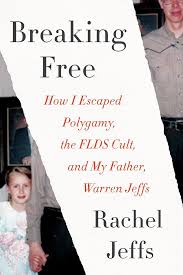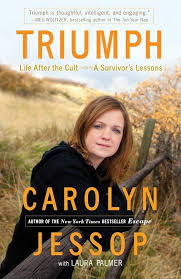Triumph and Freedom – Fighting the FLDS
An American religious cult based in the far west, the Fundamentalist Church of Jesus Christ of Latter-Day Saints (FLDS) is a polygamist group that split from the Church of the Latter Day Saints (Mormons) more than a century ago. For decades the FLDS has attracted concern and attention from law enforcement, often because of its sexual abuse of girls and casting out young men. The FLDS believes that its leader is the one and only voice of God. Accordingly, FLDS membership, family structures, work, and nearly all aspects of life is controlled and directed. The current leader, or prophet, of the FLDS, issues edicts from prison, where he is serving a life sentence for sexual assaults and other crimes. The FLDS has been covered extensively in the media, from news stories to documentaries. More is on the way as people escape the cult and attempt to create new lives, integrating into the modern world. A nativist domestic cult that has harmed thousands, the FLDS has patriarchy and the subjection of women at its core, along with violence and white supremacy. The FLDS is an evil organization.
Two memoirs, promoted at a local library, opened a window into life in the FLDS. Breaking Free: How I Escaped Polygamy, the FLDS Cult, and My Father, Warren Jeffs, by Rachel Jeffs, is the story of life in the cult and the author’s escape. Carolyn Jessop’s Triumph: Life After the Cult – A Survivor’s Lessons is written from a different place, as the author left the FLDS years before and is now working to free others from its grasp. Both Jeffs and Jessop hail from FLDS leadership families. Both authors had extremely difficult childhoods, were abused, and were forced into arranged marriages. Family ties – and through FLDS practice of arranged marriages and multiple wifes, the connections are very complex – supported and constrained both women. They love their children and their family members, yet at the same time, so many of the extended family and FLDS practices were toxic. Both women are heroes, fighting for agency and independence. The journey to agency, though, is neither quick or nor linear. It is no surprise that both actively resist being labeled as victims.
It is fascinating to learn how both women, and their friends and family, have wrestled with their personal histories and gaining independence. We are, by nature, social and our understanding of ourselves and our world is shaped by those around us. Change is difficult, and for these authors, it has required time and great strength. One cheers for them as they fight for decency and agency.
For those interested in what life was like in the FLDS, Jeffs’ account is the more immediate. To better understand how the FLDS used laws and structures to maintain power, Jessop’s book is more helpful. Read in conjunction, the two memoirs offer something else – a lesson on how extreme patriarchy functions. It is toxic, antithetical to democratic values, and denies people – especially women – anything akin to real humanity. This is not abstract academic gender theory. One does not need to study the Taliban or ancient history. The FLDS offers a close to home primer on the malevolent ways that religion, sex and family structures can persist, even today, while causing great harm.
The books are harrowing, frightening, and very personal. These are memoirs. The authors write directly, from the heart. Despite the hardships portrayed, ultimately, both books affirm the power of individual growth, choice and agency.
David Potash

